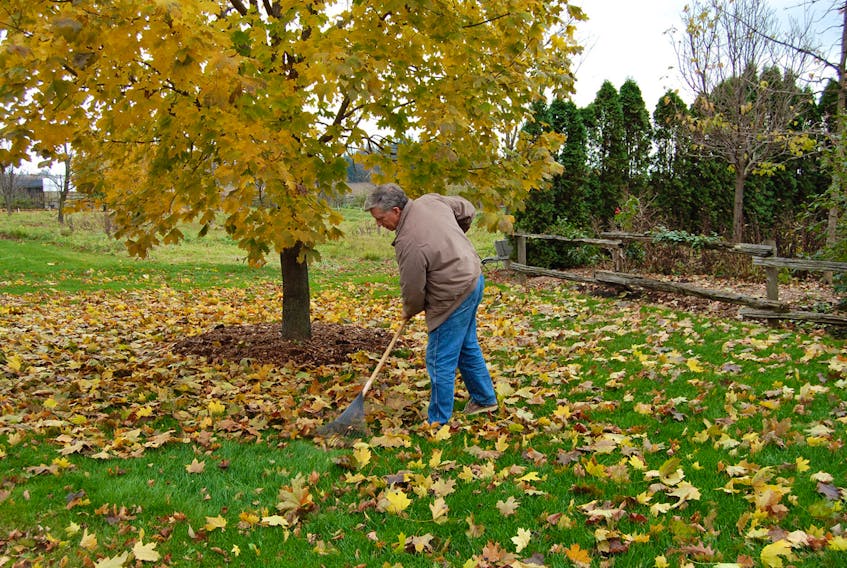By Mark and Ben Cullen
It is late October and this is no time to panic - there is lots of time for that. But there are a few jobs around the garden that could use your attention. While there is some strength in the sun and being out of doors still feels comfortable, we have a few suggestions.
Our garden priorities for mid-fall:
1. Leave the leaves. Let’s start with what ‘not’ to do. Don’t blow your leaves, with a leaf blower (no less), into a pile, shove them into a paper bag and drag them down to the street for the city to pick up. Instead, rake them onto your garden. That is it. Just let them sit there all winter until the earthworms pull them down, drowning them in the existing soil and digesting them into nitrogen-rich earth worm poop. In other words: let the worms do the work. Your garden will look much better for their efforts. And this takes a lot less effort than the alternative. If you have ‘too many’ leaves, run your power mower over them before you rake them onto the garden.
2. Plant Holland bulbs. This is a job for ‘planners’. For some people, like those who have no idea what their plans for the rest of this weekend look like, this is hard. You plant dormant, rather unattractive tulip, daffodil and hyacinth bulbs this time of year and wait until spring for something to happen. Bulbs should always be planted in quality, well drained soil about three times as deep as the bulb is thick, measured from top to bottom.
3. Fertilize your lawn. Readers with a love of their lawn have been waiting to hear this: your application of lawn fertilizer this time of year is the most important of the year. The fall formula of lawn fertilizer should be 12-0-18, with less nitrogen (the first number) and more potassium (the third number) than the fertilizer you applied earlier in the season. The potassium provides nutrients to the roots of your grass plants, beefing them up for the long winter ahead. The result is a stronger lawn that recovers from winter-related stress much better than un-fertilized lawns. Apply before the snow flies.
4. Dig and divide. Many of the perennial plants that have established over the years in your garden are ripe for dividing and moving round your garden. Hostas and daylilies are perfect examples of plants that divide very well this time of year. Dig out the whole plant, cut it in half with a sharp shovel or spade. If it is big enough, say, the size of a large pie plate, divide it again, into quarters. You may think that you will get wedge-shaped plants next spring but not so. Through some miracle, they appear in late April looking healthy and just like any plant that you might have purchased in a round pot. Be sure to plant in quality soil.
Water them thoroughly after planting.
Divide monarda, Shasta daisy, peonies, Baptista, rudbeckia, Echinacea, Turtlehead and virtually all the densely-rooted perennials in your garden this time of year.
5. Prune trees and shrubs. This is the perfect time of year to prune a cedar hedge, large spruce or pine, deciduous trees including maples and birch (which bleed come spring if you leave this job much later). Flowering shrubs that have bloomed late this season should be pruned now. Rose of Sharon, asters and mums bloom better next year when pruned now. We don’t prune ornamental grasses or hydrangeas until spring. And we postpone apple pruning until late winter.
Get all of that? Remember to sit and absorb the remaining weeks in your garden before the snow flies. Allow the effects of nature to seep into your bones. Spring is a long way off.
Mark Cullen is an expert gardener, author, broadcaster, tree advocate and holds the Order of Canada. His son Ben is a fourth-generation urban gardener and graduate of University of Guelph and Dalhousie University in Halifax. Follow them at markcullen.com, @markcullengardening, on Facebook and bi-weekly on Global TV’s National Morning Show.









